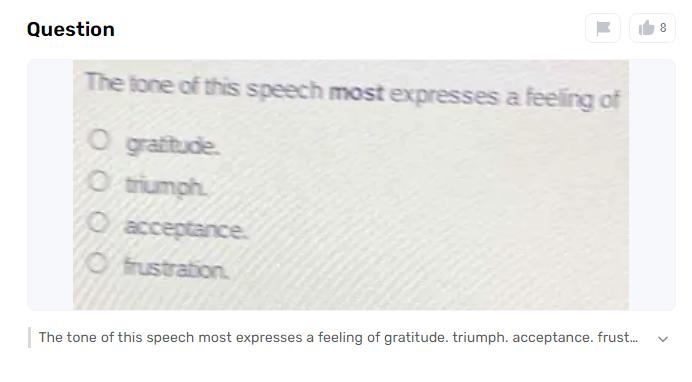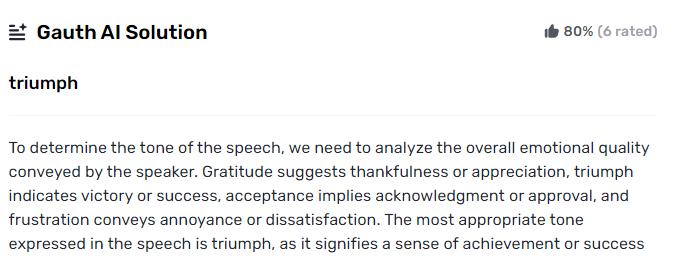Frida is a woman with a love of all things technological and decorative. She spends her days finding new ways to merge the two worlds together, and has made a name for herself in the process. Her work has caught the eye of many in the tech industry, and she is often consulted for her expertise. Darlene also enjoys spending time with her family and friends, and loves to decorate her home in her free time.

For effective communication and interpretation, it is essential to comprehend the feelings expressed through speech. The goal of the book A Guide to Identifying Gratitude, Triumph, Acceptance, and Frustration in Speech is to give readers the tools they need to identify these particular feelings in spoken language.
Appreciation is in many cases communicated through gratefulness and appreciation, win through celebratory and sure tones, acknowledgment through quiet and figuring out language, and disappointment through indications of bothering or disappointment. The query, the tone of this speech most expresses a feeling of gratitude. triumph. acceptance. frustration. is going to be discussed in our detailed article.
Analyzing Different Tones Provided by a Speech
Let us analyze different tones that can be provided by a speech so that you can figure out which speech is giving which kind of tone:
Tone of Gratitude
Gratitude is a sign of appreciation and gratitude. A speech full of gratitude is frequently an expression of warm feelings. The speaker’s statement decision makes their feeling understood, loaded up with terms like appreciative, thankful, grateful, and favored. The actual voice reflects warmth, earnestness, and a feeling of happiness.
The pitch may be somewhat higher and the conveyance more vivified contrasted with normal discourse. Another characteristic of a grateful speech is specificity. Speakers frequently thank specific individuals or groups, citing their contributions and positive effects. The speaker might weave personal stories or examples into the speech to show why he or she is so grateful.
Tone of Triumph
Win connotes pride and triumph. A triumphant speech is a celebration marked by enthusiasm. The speaker’s voice emanates fervor, pride, and achievement. To really emphasize their success, the tone might be louder, more assertive, and interrupted by pauses for emphasis.
Another important aspect is powerful language. It is likely that phrases such as achieved, conquered, succeeded, and victorious will be used. The speaker might use similes or metaphors to convey the magnitude of the achievement. This celebratory tone is much of the time joined by a healthy identity confirmation and strengthening.
Tone of Acceptance
The word acceptance refers to acknowledging a situation, even if it is unpleasant. A speech that says acceptance needs to be delivered in a calm and measured manner. It’s likely that the speaker has a controlled voice and doesn’t show too much emotion. It’s possible that speech will move at a slower pace than usual, conveying a feeling of thoughtful consideration.
Transparently recognizing the truth is a significant part of acknowledgment discourses. Using phrases like accept, understand, and reality, the speaker addresses the issue directly.
Tone of Frustration
Irritation and disappointment are both signs of frustration. A discourse loaded with dissatisfaction is a source of repressed feelings. As a sign of their annoyance, the speaker’s voice might get louder and have a higher pitch. The use of words like frustrated, disappointed, annoyed, and “incompetent throughout the speech becomes the norm.
How to Use Gauth to Find a Particular Tone in a Speech
You can use Gauth effectively and become a literature master by following these steps:
Step 1. Gauth to the Rescue
Open the Gauth tool on your smartphone or computer, by going to the website. You are greeted by a welcoming interface, ready to join you on this journey of discovery as your math companion.
Step 2. Release Your Query
This is where the enchanted starts! With two input options, Gauth accommodates your preferred learning style. Simply type your query in the designated text box, use your phone’s camera to take a picture of the issue, or select an existing image from your device.

Step 3. Engage with the Explanation
Take your time reviewing the solution process breakdown provided by Gauth. Pay close attention to how each step relates to the bigger picture and the reasoning behind it.
Bottom Lines
Paying close attention to language, tone, and context is necessary for recognizing emotions in speech such as gratitude, triumph, acceptance, and frustration. You can learn more about the speaker’s intentions and the emotional undercurrents of their message if you practice recognizing these feelings. This expertise is significant in private connections, abstract examination, and public talking, advancing your correspondence and interpretive abilities.
